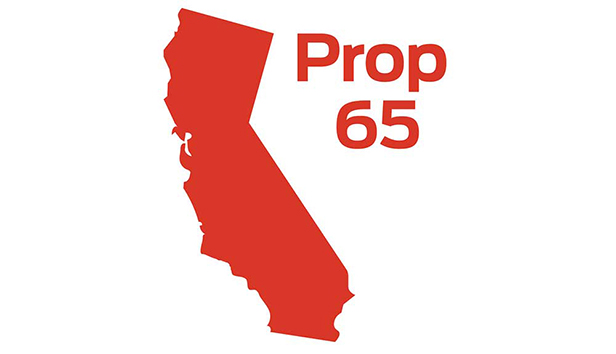News July 26, 2018
Navigating the Complexities of Prop 65
When sugars and amino acids are heated above 248 degrees Fahrenheit, a chemical called Acrylamide is formed. The process occurs when popcorn is popped, for example, or coffee beans are roasted. Which is why, thanks to new regulations starting August 31, Starbucks customers in California will be greeted with a Prop 65 warning right between the creamer and the sugar.
Such is the extent of California’s byzantine Proposition 65 rules – regulations that are slated to become even more complex at the end of the summer. In their session on Prop 65 requirements at the ASI Show Chicago, lawyers Erik Swanholt and Alyssa Titche of Foley & Lardner LLP covered the wide-ranging impact of California’s safety regulations, and cast a discouraging prediction for those who believe the new regulations will reduce legal action and bring clarity. “We don’t think,” said Swanholt, “that is going to happen.”
Under Prop 65, products sold or used in California must carry a warning label if they contain certain chemicals – a list that started with just a couple dozen but has since ballooned to more than 900. New amendments to the regulations now mandate that in the warning, manufacturers must specify the chemicals present in the product. In addition, food and alcoholic beverages must now carry the warnings when necessary.

But perhaps the biggest change is that websites selling products and printed catalogs must prominently display the same warnings. “You’re going to need to have your Prop 65 warning right next to the product,” Titche said. “If you have three products on a page, you’ll need a warning for each product.” That raises the possibility of all website visitors being greeted with the intrusive warnings. Swanholt and Titche raised multiple solutions, such as the warning only appearing for California residents after they’ve added their products to an online shopping cart and input their ZIP code.
If manufacturers or distributors don’t apply warnings, they leave themselves open to Prop 65 “bounty hunters” – law firms that bring private citizen suits against violators to score an easy pay day. In 2016, there were nearly 1,110 settlements for a total of $40 million. Promotional products distributors and suppliers must deal with an added layer of complexity, because even if they sell products to an end-buyer in another state, those products could still potentially be given away or sold in California.
Swanholt and Titche downplay the notion that the warnings impact sales because they’re so omnipresent in California that residents tend to ignore them. Plus, consumers often assume that if a product can be purchased, it must be safe. However, Prop 65 warnings must be applied when required, and the new amendments have created a lot of gray areas that have yet to be litigated or legislated. “There are a lot of ‘Catch-22s’ in there that are expected to be resolved at some point,” Swanholt said.
